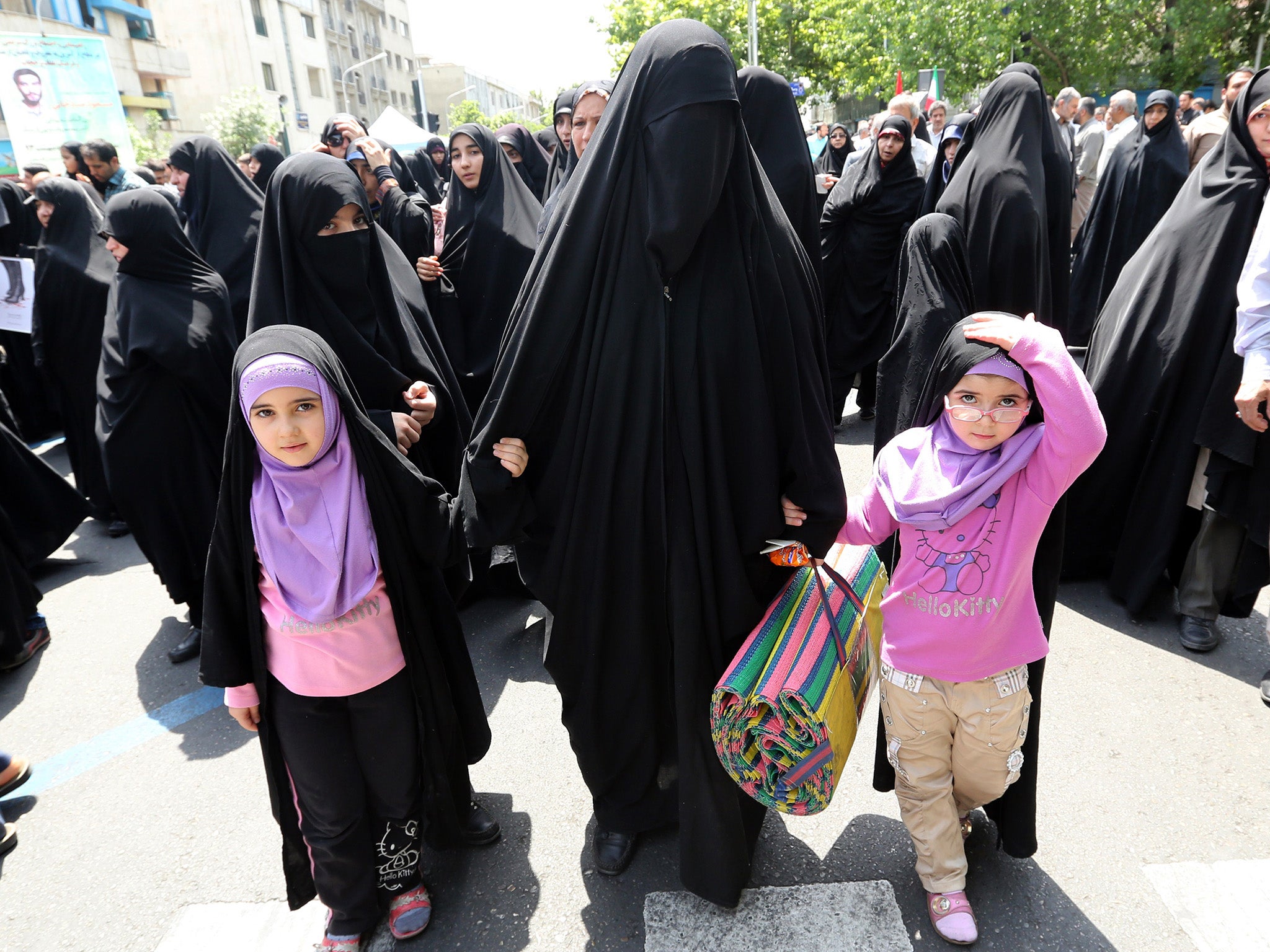Iran jails fashion bloggers and models for 'spreading prostitution'
12 people given up to six years in prison for images posted to social media, according to local news reports

Your support helps us to tell the story
This election is still a dead heat, according to most polls. In a fight with such wafer-thin margins, we need reporters on the ground talking to the people Trump and Harris are courting. Your support allows us to keep sending journalists to the story.
The Independent is trusted by 27 million Americans from across the entire political spectrum every month. Unlike many other quality news outlets, we choose not to lock you out of our reporting and analysis with paywalls. But quality journalism must still be paid for.
Help us keep bring these critical stories to light. Your support makes all the difference.
Twelve people in Iran’s fledgling fashion industry have reportedly been sentenced to prison after being found guilty of ‘spreading prostitution’ online.
Lawyer Mahmoud Taravat told state news agency Ilna that the eight women and four men he represents received jail time of between five months to six years handed down by a Shiraz court on Monday.
The charges included “encouraging prostitution” and “promoting corruption” through the publication of “obscene” images online, the court said, spreading a “Western-style culture of nudity“ designed to corrupt Muslims.
In addition to the jail time, some of the individuals were banned from travelling abroad or working in journalism, the civil service, fashion and photography for two years on their release.
His clients - who were not named - deny all charges and are planning to appeal the decisions, Mr Taravat added.
Iran has recently been seeking to crack down on violations of the country’s strict laws on ‘un-Islamic’ behaviour, particularly when it comes to social media use, after an invocation from the state’s supreme leader Ayatollah Ali Khamenei.
“[The internet] is a real battlefield. The clerics and seminary students should prepare to enter this field and fight against deviations and erroneous thoughts,” he said earlier this year.
The Centre for Investigation of Organised Crime, a branch of the elite religious Revolutionary Guards Corps (IRGC), routinely monitors social media for evidence of immorality or subversion on the part of citizens.
It’s not the first time people working in the fashion industry have been targeted: in May, arrest warrants were issued for eight models because of pictures of them posted to Instagram in which their hair was not covered by a hijab.
One leading model was forced to publicly repent after being charged with “promoting western promiscuity."
Subscribe to Independent Premium to bookmark this article
Want to bookmark your favourite articles and stories to read or reference later? Start your Independent Premium subscription today.
Join our commenting forum
Join thought-provoking conversations, follow other Independent readers and see their replies
Comments